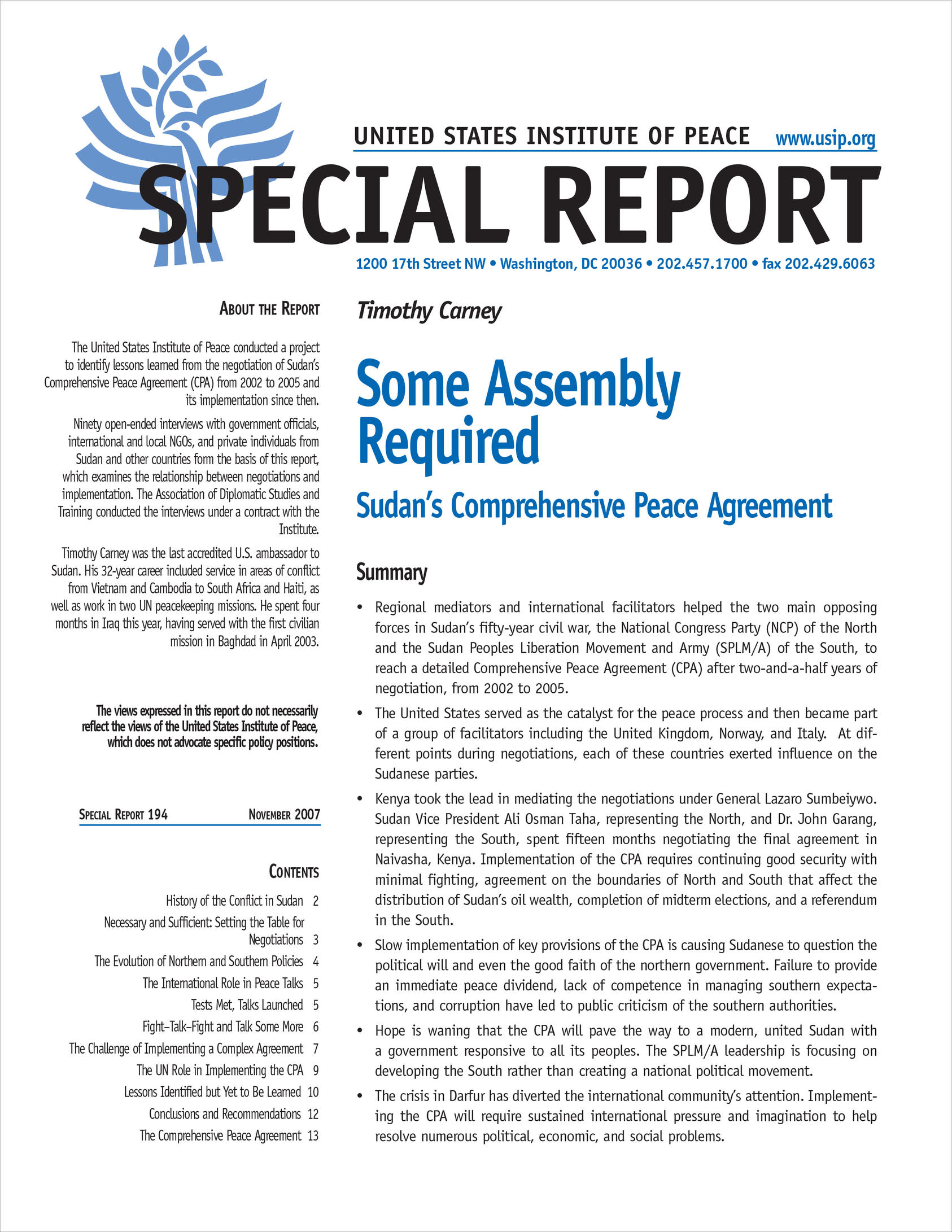Some Assembly Required: Sudan's Comprehensive Peace Agreement
While Sudan has recently reached a Comprehensive Peace Accord (CPA) between the northern and southern regions, tensions still smolder. As commonoly said, "The devil is in the details," in implementation of the accord. To identify lessons learned from the negotiation of the agreement from 2002 to 2005 and its implementation since then, USIP conducted a project, the conclusions of which are discussed in this special report.

Summary
- Regional mediators and international facilitators helped the two main opposing forces in Sudan’s fifty-year civil war, the National Congress Party (NCP) of the North and the Sudan Peoples Liberation Movement and Army (SPLM/A) of the South, to reach a detailed Comprehensive Peace Agreement (CPA) after two-and-a-half years of negotiation, from 2002 to 2005.
- The United States served as the catalyst for the peace process and then became part of a group of facilitators including the United Kingdom, Norway, and Italy. At different points during negotiations, each of these countries exerted influence on the Sudanese parties.
- Kenya took the lead in mediating the negotiations under General Lazaro Sumbeiywo. Sudan Vice President Ali Osman Taha, representing the North, and Dr. John Garang, representing the South, spent fifteen months negotiating the final agreement in Naivasha, Kenya. Implementation of the CPA requires continuing good security with minimal fighting, agreement on the boundaries of North and South that affect the distribution of Sudan’s oil wealth, completion of midterm elections, and a referendum in the South.
- Slow implementation of key provisions of the CPA is causing Sudanese to question the political will and even the good faith of the northern government. Failure to provide an immediate peace dividend, lack of competence in managing southern expectations, and corruption have led to public criticism of the southern authorities.
- Hope is waning that the CPA will pave the way to a modern, united Sudan with a government responsive to all its peoples. The SPLM/A leadership is focusing on developing the South rather than creating a national political movement.
- The crisis in Darfur has diverted the international community’s attention. Implementing the CPA will require sustained international pressure and imagination to help resolve numerous political, economic, and social problems.
About the Report
The United States Institute of Peace conducted a project to identify lessons learned from the negotiation of Sudan’s Comprehensive Peace Agreement (CPA) from 2002 to 2005 and its implementation since then.
Ninety open-ended interviews with government officials, international and local NGOs, and private individuals from Sudan and other countries form the basis of this report, which examines the relationship between negotiations and implementation. The Association of Diplomatic Studies and Training conducted the interviews under a contract with the Institute.
Timothy Carney was the last accredited U.S. ambassador to Sudan. His 32-year career included service in areas of conflict from Vietnam and Cambodia to South Africa and Haiti, as well as work in two UN peacekeeping missions. He spent four months in Iraq this year, having served with the first civilian mission in Baghdad in April 2003.



